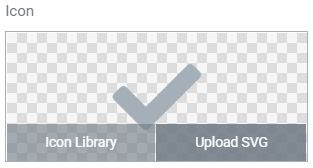The term webmaster it was first used by Tim Berners-Lee, the inventor of the World Wide Web, in his "Style Guide for Online Hypertext." The word is made up of the English words "web", short form of World Wide Web and "master". In the early days of the WWW, in the early 1990s, the term was used primarily as a professional name for people who run their own website. At that time, web pages were only developed and managed by one person, so the webmaster was responsible for all aspects of the site. Responsibilities included design, development, maintenance, and marketing. At this time, these tasks frequently require a whole team of specialists, which is managed by a webmaster. That person is now a generalist, who oversees all sections of the project and coordinates the procedures.
Webmaster Tasks
Webmasters can work as agency workers, as freelancers, as self-employed entrepreneurs, or in the IT department of a large organization. If a website is small and not too complex, it can now be created with a single webmaster, certainly in cooperation with a specialist. The following tasks must be performed:
- As part of the conception of the web portal, the webmaster (together with the client, if it is not his own site) composes the content requirements in a requirements catalog. This includes the texts, the menu items, the navigation and the external appearance, that is, the layout. Next, the technical requirements of the project to be carried out and the associated costs are evaluated. With this information, the webmaster can choose a provider to host the web portal.
- For the creation of the page, the webmaster follows the catalog of requirements and programs the desired functionality and the desired design. At this time, a Content Management System (CMS) can be used to make it easier. The most popular are WordPress, Joomla, TYPO3, and Drupal. Websites can be created without the need for programming knowledge. After its creation and acceptance by the client, the web portal is finally made public on the Internet.
- Even after completion, some pages require a maintenance regular, which only the webmaster can perform. These include, for example, subsequent adjustments related to content or user rights management.
- The subsequent strategy of marketing of the website is becoming more and more important. In order for the website to be found by users, webmasters do SEO. An example of OnPage optimization is the analysis of the search terms that make the web portal the highest viable in search engine results lists. These should be inserted into the text in a sensible way. In OffPage optimization, you try to make your site popular with practices such as link exchanges or Affiliate Marketing.
However, creating a more complex application, such as a large e-commerce web portal, will require a separate team of experts. In this case, the webmaster acts as the "web portal architect" or project manager. Its tasks are as follows:
- Advice in the planning stage of the project.
- The selection of experts participating in the project.
- The general direction and coordination.
- Web and app technical support.
Competencies
Market studies have shown that successful websites are not developed by pure designers or basically by technology specialists. These projects were carried out by generalists, who have various professional and methodological skills in all fields. At the same time, webmasters as coordinators are frequently in the field of tension between the client and the production team. Mastering it, along with pure expertise, requires a high degree of communication skills, teamwork, social competence, perseverance, imagination, and the ability to handle a large amount of work.
Training and education
Since the professional title of webmaster is not legally protected in Europe, professional training is not regulated by the state. However, some private education organizations offer primary education or vocational training, which generally lasts 6 to 12 months. In addition, distance training programs on this subject are offered, allowing you to complete your training part-time. The length of a training course of this type is about 2 years. Technical colleges and universities are already offering various webmaster competitions, for example 'digital media' or 'media information'.






